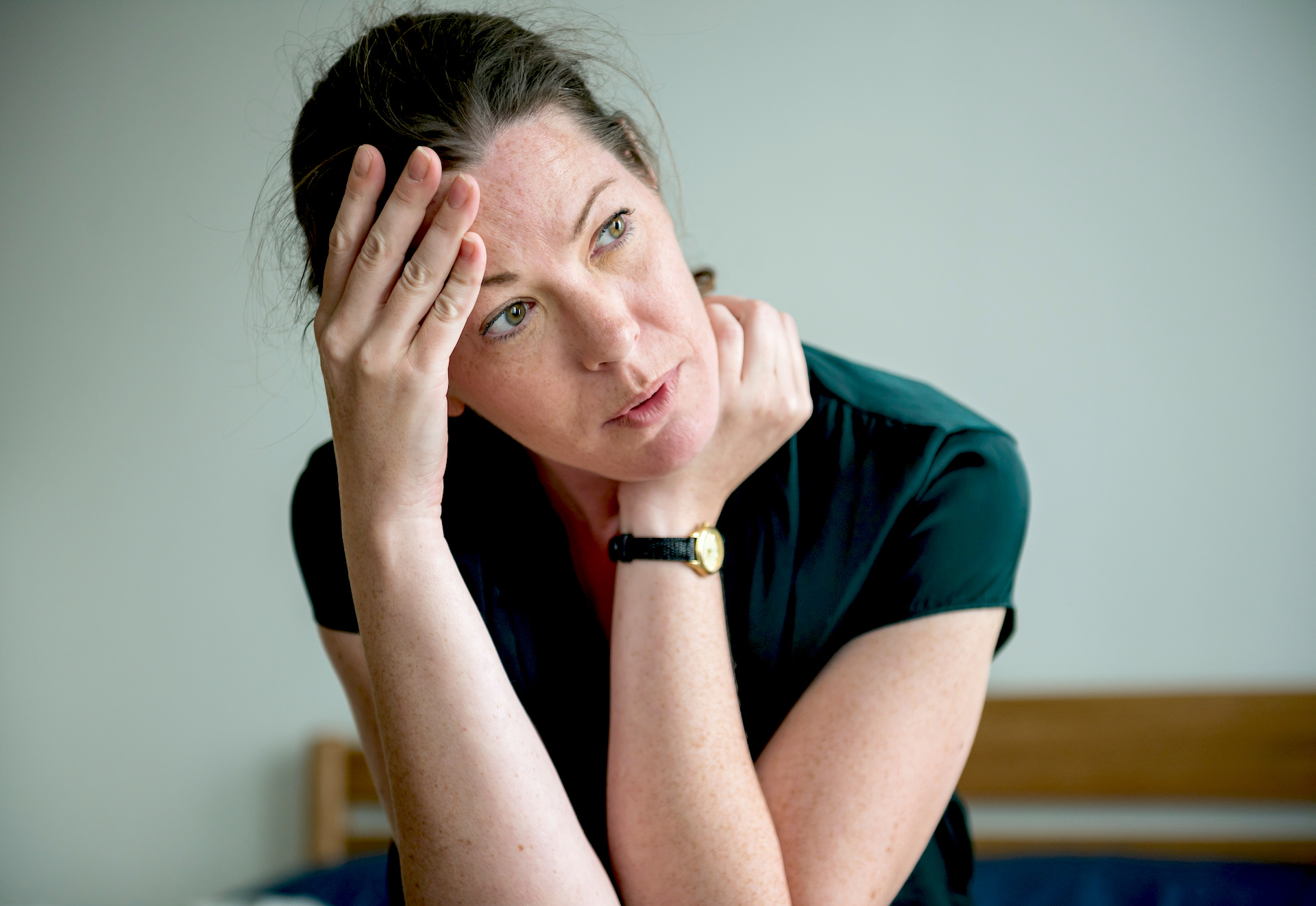You know when a cow eats a bunch of grass, pukes it up and chews it some more? We call that rumination… It’s a delightful digestive feature that makes cows ruminants in the biological sense.
In fact, the word “ruminant” comes from the Latin ruminare, which means “to chew over again”. But what about in the context of mental health? What about those of us who ruminate—not on clumps of chewed grass but on recurring thoughts or past experiences—over and over again?
Are we getting more nutrition out of chewing our psychological cud, or are we simply worrying, obsessing and keeping ourselves from living our best lives? And how do we move past or mitigate these ruminating tendencies?
In this article, we explore rumination from an evidence-based perspective and look at some of the tools we have for moving on from these behaviours and living our lives.
What Are Ruminating Thoughts?
Ruminating thoughts are sometimes compared to a broken record, a hamster wheel, or an endless loop. People experiencing rumination may…
- Replay past mistakes or embarrassing moments over and over
- Obsessively reevaluate past actions
- Focus on aspects of themselves they wish they’d stop thinking about
- Feel stuck in a loop of negative thoughts
- Repeatedly revisit past arguments and disagreements in their head
- Worry about multiple future scenarios simultaneously

If most of these sound familiar, you may be prone to ruminating thoughts. But don’t worry, you’re not alone. Rumination is a common symptom of mental health and addiction disorders, especially depression. It is also strongly associated with PTSD.
Is Rumination A Mental Health Disorder?
DSM-5 covers gastrointestinal rumination, which is not the topic of this article. What about recurring/intrusive thoughts that are hard to shake or move past? DSM-5 does not cover these as a stand-alone disorder but rather deals with the “presence of obsessions, compulsions, or both” under Obsessive-Compulsive Disorder, often shortened to OCD.
In OCD, persistent thoughts, urges or images are experienced intrusively, causing anxiety or distress in individuals. OCD has many other components to it, such as compulsion, which we won’t go into here. Ruminating thoughts are neither necessary nor sufficient for an OCD diagnosis; they are not the same as OCD, nor are they necessarily a disorder. But even behaviours that are not considered disorders can impact our lives negatively.
Why is Rumination a Problem?
According to the American Psychiatric Association (APA), rumination involves repetitive thinking or dwelling on negative feelings and distress and their causes and consequences; it can contribute to the development of depression or anxiety and can worsen existing conditions.
Thus, rumination can be particularly harmful to individuals who are struggling with mental health and addiction disorders. People with depression, anxiety, PTSD, and addiction may find themselves ruminating on past traumas or mistakes, leading to feelings of shame, guilt, and hopelessness, ultimately fueling negative emotions and possibly leading to substance use as a coping mechanism.

Rumination also poses a serious problem insofar as it creates a roadblock; it can make it difficult to move into problem-solving, as so much of the focus is given to dwelling on the problems.
Moving On From Ruminating Thoughts
Luckily, there are lots of tools, therapies, and approaches for dealing with ruminating thoughts.
The APA has a handful of tips for helping deal with moments of rumination, such as:
- Distracting yourself with preferred activities or new experiences that can help interrupt the cycle of negative thoughts. Maybe a hike with friends?
- Intentionally recalling times when things worked out, even with challenges (friends and family can help with this)
- Doing physical activity and seeking a change in environment, especially to a place that has positive associations
- Separating out different problems or breaking down larger problems into smaller parts, making it possible to tackle one issue at a time. It may also help to write things down, make a mind map, or even make a timeline of different steps you’ll need to take.
At SCHC/GSWC, we have a number of tools, approaches and therapies that we use to help people work through ruminating thoughts. These include…
CBT: Challenging Your Inner Critic
Cognitive Behavioral Therapy (CBT) is a powerful tool for breaking free from the cycle of rumination. It helps individuals identify and challenge negative thought patterns and develop more positive coping strategies. With CBT, you can learn to challenge your inner critic and start seeing yourself in a more positive light.
Mindfulness: Living in the Moment
Mindfulness-based therapies can help individuals learn to observe their thoughts without judgment and develop a more compassionate relationship with themselves. Mindfulness can help you live in the moment, and stop worrying about the past or future. We talk about mindfulness in our Urge Surfing article.

DBT: Managing Your Emotions
Dialectical Behavior Therapy (DBT) is a therapy that combines elements of both CBT and mindfulness-based therapies. It can be particularly helpful for individuals who struggle with intense emotions and self-destructive behaviours, as it focuses on developing skills to manage difficult emotions and reduce impulsive behaviours. With DBT, you can learn how to manage your emotions and stop letting them control your life.
Medication: A Helping Hand
In some cases, medication may be helpful in reducing the symptoms of rumination. Antidepressants and anti-anxiety medications may be prescribed to help manage the negative emotions that can contribute to rumination.
Holistic Health: The Whole Picture
Making changes to lifestyle factors such as diet, exercise, and sleep can also help reduce rumination. Eating a healthy diet, getting adequate sleep, and doing exercise regularly have all been shown to have a positive impact on mood to reduce symptoms of depression and anxiety.
In closing, there are lots of ways to help people move through these intrusive and obsessive thought patterns. For us, it all starts with listening, understanding, and getting to know our clients to work with them and determine the best course for their healing journey.
At Sunshine Coast Health Centre and Georgia Strait Women’s Clinic, we take an approach that recognizes the physical, psychological, social and spiritual aspects of treatment and recovery. If you or someone you know is looking for support with substance use and/or mental health, give us a call today.




